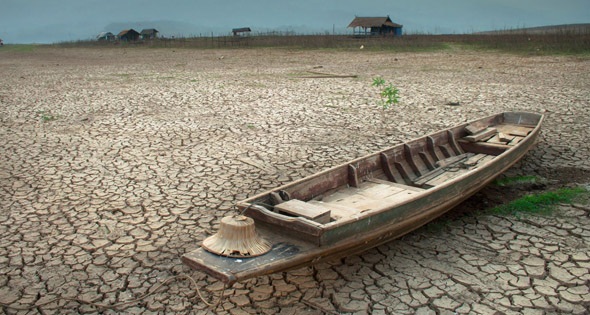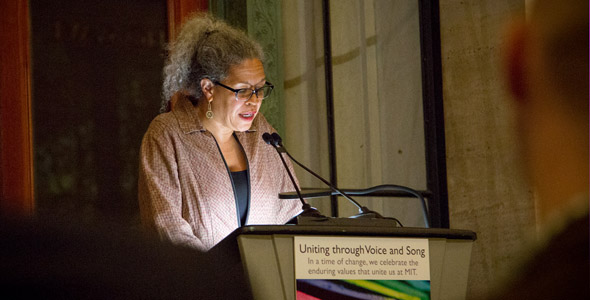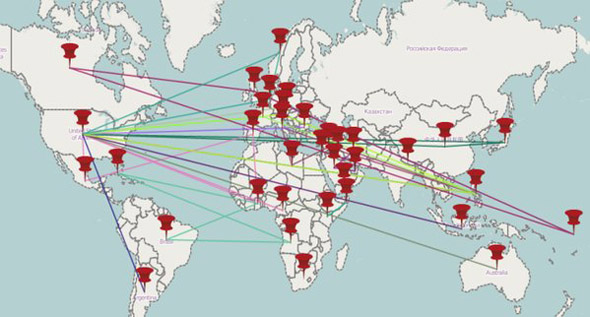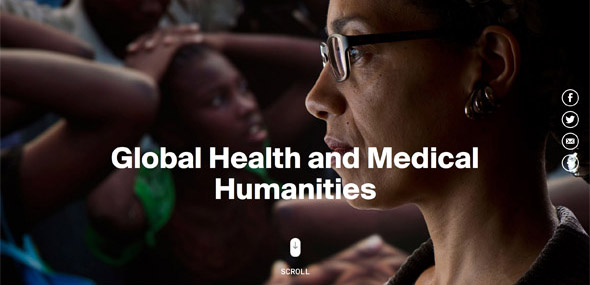Said and Done
December 2016 Edition
Published by the Office of the Dean
MIT School of Humanities, Arts, and Social Sciences

QUOTABLE
"Almost anyone engaged with global issues of human well-being, the distribution of resources, or the future of society is doing moral philosophy."
— Kieran Setiya, MIT Professor of Philosophy
HONORS AND AWARDS
ECONOMICS
Bengt Holmström gives Nobel lecture, receives Nobel Prize in Stockholm
Story + Videos from the Lecture and Ceremony
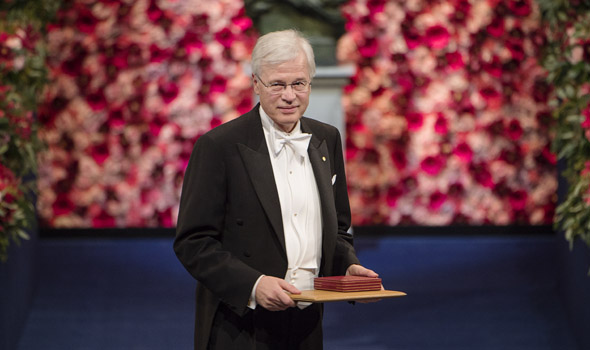
Bengt Holmström, Paul A. Samuelson Professor of Economics, upon receiving the Nobel Prize, December 10, 2016, in Stockholm; Photo © Nobel Media AB 2016/Pi Frisk
COMPARATIVE MEDIA STUDIES
Edward Schiappa receives Charles Woolbert Research Award
Schiappa, the John E. Burchard Professor of Humanities, and Head, MIT Comparative Media Studies/Writing has received one of his field's highest honors — the Charles H. Woolbert Research Award, given by the National Communication Association “to a journal article or book chapter that has stood the test of time and has become a stimulus for new conceptualizations of communication phenomena.”
Story at SHASS News
CENTER FOR INTERNATIONAL STUDIES
Lourdes Melgar SM '88, PhD '92 named Wilhelm Fellow
Melgar, Mexico's former deputy secretary of energy for hydrocarbons, will write on Mexican energy reform and research women's roles in political and social transformation.
Story by Michelle Nhuch
CMS/W | OPEN DOCUMENTARY LAB
Thorsten Trimpop wins Golden Dove grand prize at Leipzig Festival
CMS/W lecturer and Open Doc Lab fellow has won the prestigious documentary filmmaking prize for “Furusato,” chronicling the effects of the Fukushima nuclear disaster.
Story by Andrew Whitacre
ECONOMICS
Olivier Blanchard is President Elect of the American Economic Association
Blanchard is the Robert M. Solow Professor Emeritus of Economics, and the Fred Bergsten Senior Fellow, Peterson Institute for International Economics. He taught at the Institute from 1982 to 2011, and served as Chair of the Department of Economics from 1998–2003.
Story at the American Economic Assocation | Blanchard's MIT webpage

L to R: Edward Schiappa, John E. Burchard Professor of the Humanities, and Head, Comparative Media Studies/Writing; Lourdes Melgar, SM '88, PhD '92, Wilhelm Fellow; Olivier Blanchard, Robert M. Solow Professor Emeritus of Economics
FEATURE | THE HUMAN FACTOR SERIES
Tackling the cultural, political, and economics dimensions of global issues
Kieran Setiya | How philosophy can address the problem of climate change
“[Even] the most technocratic assessment of costs and benefits makes assumptions about what counts as cost and benefit: about the value of human life and the demands of justice. Making our ethics more explicit, being self-conscious about our principles and premises, improves our moral thinking. This is particularly true when the questions are ones of public policy.”
3Q Interview by SHASS Communications
“Is the obligation to act on climate change a matter of distributive justice, restitution, or insurance against catastrophe? Which should be our focus? These questions bridge theory and practice, moral principle and political strategy.”
— Kieran Setiya, MIT Professor of Philosophy
RESEARCH
ANTHROPOLOGY
Steppe by steppe | Manduhai Buyandelger studies Mongolian society in transition
Anthropologists often work best with one foot inside a society and one foot outside it. They are steeped in a culture, but detached enough to analyze it. For MIT's Buyandelger, this vantage point is part of life itself. She is a Mongolian anthropologist, whose work illuminates her home society and very much derives from her own insider-outsider relationship to it.
Story by Peter Dizikes at MIT News
POVERTY ACTION LAB
Experts gather at MIT to catalyze more innovation in health care delivery
Nearly 200 leading health care scholars, practitioners, and providers gathered Nov. 17-18 to discuss innovations in health care delivery and explore how research and evidence-informed policymaking can improve the health of vulnerable populations in the U.S. “Just as randomized controlled trials transformed modern medicine, there is an exciting movement in health policy focused on the use of rigorous evaluation to improve the way we deliver health care,” said Quentin Palfrey, executive director of J-PAL North America.
Story by J-PAL at MIT News
COLLABORATION
MIT community tackles tough ethical questions of climate change
Why is it so hard for human beings to address climate change? What can motivate effective action?
Story by SHASS Communications
POLITICAL SCIENCE
Evaluating voter experience | Charles Stewart III
Wait times at polls in the 2016 election improved in several key states, new survey results show. “All the effort over the last four years appears to have paid off,” Stewart says. However, he cautions that some states still have a ways to go before wait times are within acceptable limits.
Story by Abby Abazorius at MIT News
ARTS + COMPARATIVE MEDIA STUDIES
Face to face with "The Enemy" | Karim Ben Khelifa + Fox Harrell
Visiting Artist Karim Ben Khelifa is collaborating with CMS Professor Fox Harrell to create immersive experiences using virtual and augmented reality to humanize soldiers in global conflicts. Khelifa and Harrell are combining interviews and photography with the latest research in AI and digital media arts to explore VR’s potential to cultivate increased empathy and self-awareness.
Story by Sharon Lacey
COLLABORATION
Parag Pathak named deputy director of the MIT Integrated Learning Initiative
The integrated sciences of learning, now emerging as a significant field of research, is at the core of MITili (pronounced “mightily”). Taking a cross discipline approach, and applying scientific rigor to investigate the methods that lead to effective learning, MITili aims to enhance the educational experience from pre-K to MIT and beyond. Pathak is a professor of economics and a founder of the SHASS-based School Effectiveness and Inequality Initiative (SEII).
Story at MIT News
POVERTY ACTION LAB | STATE AND LOCAL INNOVATION INITIATIVE
State and local governments invited to apply for funding/support on policy challenges
Selected governments will partner with J-PAL to test which programs work, which work best, and why. The governments selected to participate in this initiative will receive flexible pilot funding of up to $100K pro bono technical support from J-PAL North America staff, and connections with experienced researchers from J-PAL’s network.
Story at MIT News
FEATURE | SONG OF THE HUMAN
LINGUISTICS + MUSIC
Song of the Human | Inspired by Shigeru Miyagawa's hypothesis on the origins of language
A major new work by British composer Pete M. Wyer draws inspiration from MIT linguistic scholar Shigeru Miyagawa's hypothesis on the origins of human language: “What attracts me to Miyagawa’s idea is the philosophical principle underlying it. We use pitch, rhythm, tone and dynamic, musical elements, as part of our speech, and when we remove words and listen only to that music, we almost do encounter a new species….Whatever we find in this wordless song, we find in all people."
Story by SHASS Communications: recordings, photographs, interviews
“If you take language and drop out the words, what you have is a system with which you can communicate, but without specific lexical meaning. Instead, you communicate intent and emotions. That’s what the expressive system is — that's what gets you in contact with the world.”
— Shigeru Miyagawa, MIT Professor of Linguistics
STUDENTS
POLITICAL SCIENCE
The courage to dissent | Amanda Rothschild
For graduate student Amanda Rothschild, political science meets personal history in her study of the U.S. response to genocide. Given the global refugee crisis stemming from Syria’s civil war, Rothschild’s work has arguably never been more relevant. Rothschild’s dissertation analyzes the policies of seven administrations in five 20th century cases and articulates three conditions necessary for taking action.
Story by Sarah Baldwin at MIT News
UNDERGRADUATES
Four MIT students named Schwarzman Scholars
MIT undergraduates Alix de Monts, Lisa Ho, Anita Liu, and Melody Liu will study for one year at Tsinghua University in China. SHASS faculty teach all MIT undergraduates, and the School is very proud of the new Schwarzman Scholars! In addition to their STEM studies, Lisa Ho is also majoring in mathematical economics, and Anita Liu is earning a minor in poltical science.
Story at MIT News
CELEBRATING MIT VALUES
Uniting through Voice and Song
In a time of political change, MIT SHASS faculty, staff, and students created an event to celebrate the enduring values that unite the MIT community. Some 150 people gathered for a program of music from many traditions, interwoven with reflections. SHASS Dean Melissa Nobles, whose office sponsored the event, opened the evening saying, “At this time of change, it is important that we lift up and celebrate our commitment at MIT to our ongoing values of discovery, freedom of expression and thought, and respect for all people.”
Story, photographs, and video by SHASS Communications
“Do your transformative work, make and seek out art, and fight for the values you believe in.”
— Helen Elaine Lee, Professor of Writing, and Head, MIT Women's and Gender Studies
COMPARATIVE MEDIA STUDIES + MISTI + URBAN PLANNING
Harnessing the power of citizens | PhD student Lily Bui
Prepared by a Master's Degree from Comparative Media Studies and by her experiences in the SHASS-based MISTI international internship program, Bui is now thriving in MIT's PhD program in Urban Planning, working with communities around the world.
Story at MIT News
DEVELOPMENT ECONOMICS | POVERTY ACTION LAB
MITx MicroMasters program in development economics, path to master’s degree
Open to anyone in the world, the new master’s degree in data, economics, and development policy (DEDP) offered by the MIT SHASS Department of Economics, represents a new path to earning an MIT master’s degree. Courses are offered online via edX by faculty based at MIT’s Department of Economics, widely recognized as the global center of research in development economics, and the Abdul Latif Jameel Poverty Action Lab, a world leader in policy-relevant research.
Story by the Office of Digital Learning
WRITING
Rhetoric class works it out in workshops | Steven Strang
Writing courses rank among the most important offerings in any academic curriculum and many OCW courses include a writing component. The latest addition is 21W.747 Rhetoric, taught by Steven Strang, the founder and director of MIT’s Writing and Communication Center.
Story at OpenCourseWare
COMPARATIVE MEDIA STUDIES
Podcast on the Exit Zero Project | Produced by CMS student Vicky Zeamer
Christine Walley's Exit Zero Project is a transmedia exploration of the traumatic effects of the loss of the steel industry in Southeast Chicago, the impact that deindustrialization has had on expanding class inequalities in the United States more broadly, and how Americans talk — and fail to talk — about social class.
Story + Podcast | Exit Zero Project | Vicky Zeamer
FEATURE | DIGITAL HUMANITIES AT MIT
Seeing Data in New Light
The application of computers to the Humanities has spawned many sophisticated tools and new approaches to visualization using digital media. From analyzing vast libraries of texts to assembling huge collections of images, digital technologies have unearthed discoveries and revealed patterns that were unimaginable in the pre-digital era. How does MIT factor in all this? Here's a story on how MIT's School of Humanities, Arts and Social Sciences is advancing digital initiatives.
Story by Joe Pickett at MIT OpenCourseWare
IN THE MEDIA
MIT SHASS In the Media
For the complete list of recent media stories about SHASS research and faculty, visit:
In the Media Section | December 2016
ECONOMICS
Advice for the next president | David Autor
MIT economist Autor says that his advice for the next president is: create protections and stronger financial assistance programs for workers who may lose their jobs as a result of trade deals.
Story at the Boston Globe
EDUCATION
College presidents urge Trump, others to protect undocumented students
In a letter released Monday, more than 100 college and university presidents, including MIT President Rafael Reif, urged Trump and others to preserve and expand a four-year-old program, called Deferred Action for Childhood Arrivals, that protects undocumented immigrants.
Story at the Boston Globe
POLITICAL SCIENCE
How Shiite Muslims view the world | Fotini Christia
MIT political scientist Fotini Christia outlines the findings from her research into the views of Shiite Muslims, which her team gathered at the world’s largest — yet largely unknown — annual Muslim pilgrimage, in Karbala, Iraq.
Story at The Washington Post
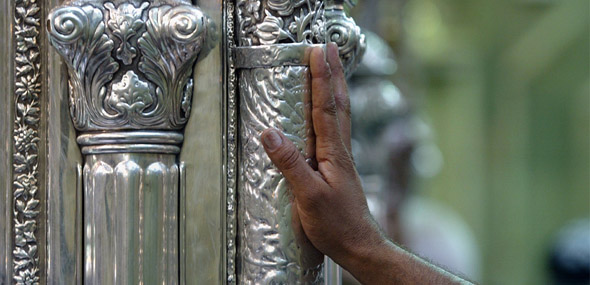
Touching a shrine in Karbala, a city visited annually by Shiite worshipers on pilgrimage
HEALTH CARE ECONOMICS
Obamacare has slowed the rise of healthcare costs | Jonathan Gruber
The Atlantic quotes MIT economist Jonathan Gruber, who explains that healthcare costs rose “35 to 40 percent in the three years before ACA.” Meanwhile, he says, “If you look at the three years since ACA, it’s still below that, including this year.”
Story at The Atlantic
LINGUISTICS
“Gobble, Gobble” or “Goulou, Goulou”? | Michele DeGraff
Why do people have different names for animal sounds in different languages? “From the very womb, your native language formats your mind to perceive animal sounds based on your own native language,” MIT linguist Michele DeGraff explains. “So the words you give to the sound of turkeys or roosters or cats or dogs, they reflect more your native language than the animal sound.”
Story at WGBH
LITERATURE
Political correctness: How the right invented a phantom enemy
Ruth Perry, the Ann Fetter Friedlaender Professor of the Humanities at MIT, tells The Guardian that historically, the term “politically correct” was “always used ironically, always calling attention to possible dogmatism.”
Story at The Guardian
FEATURE | MIT CAMPAIGN FOR A BETTER WORLD
Making A Better World | The Role of MIT SHASS
"Humanity faces urgent challenges — challenges whose solutions depend on marrying advanced technical and scientific capabilities with a deep understanding of the world’s political, cultural, and economic complexities." — L. Rafael Reif, President of MIT
Join Us
STAY IN TOUCH
SHASS stories on MIT News
Bookmark this page
Social media
Facebook | Twitter
Publications Directory
Online portal to all MIT-SHASS publications
MIT Campaign for a Better World
Story | Join Us
Said and Done is published by the Office of the Dean
MIT School of Humanities, Arts, and Social Sciences
Editor and Designer: Emily Hiestand, Director, SHASS Communications
Publication Associate: Daniel Pritchard, SHASS Communications
Published December 14, 2016
About the MIT School of Humanities, Arts, and Social Sciences
MIT champions the power of STEM + SHASS for research and for educating great engineers, scientists, scholars, and citizens.
Making a better world — Generating solutions for the great challenges of our age requires both advanced technical and scientific knowledge and a deep understanding of the world's human complexities. MIT-SHASS researches and advances the cultural, political, and economic dimensions of innovation — the broad range of human realities, from deeply-felt cultural traditions to building codes to political tensions, in which science and technology issues are embedded.
Excellence — In 2015, MIT's Social Science disciplines were ranked first in the world, and MIT's Humanities and Arts disciplines were ranked among the top three worldwide.
Research with a global impact — The MIT-SHASS research portfolio is vast, including anthropology, comparative media studies, economics, history, international studies, languages, linguistics, literature, music and theater arts, political science, philosophy, security studies, and writing, including science writing.
Education that empowers — The School teaches every MIT undergraduate, empowering students with cultural and historical perspectives, and critical thinking and communication skills — to help them serve the world wisely and well. The School's seven graduate programs are all recognized as among the finest in the world.
Cultivating leaders — SHASS has a central role in international education at MIT, and in preparing students for leadership at home and on international teams. Through all their SHASS coursework, and in MISTI, the School's pioneering applied international education program, MIT students learn how to work, collaborate, and thrive in cultures around the globe.
